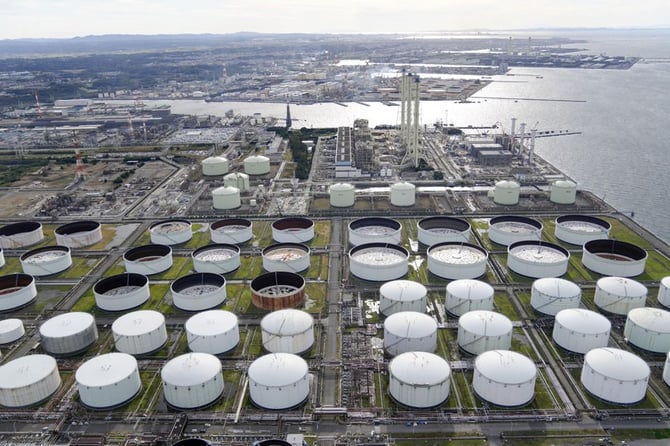Japan Joins Oil Sell-Off to Reduce Prices

Japan belatedly joined several major nations in selling oil from its strategic reserves in an attempt to fight rising prices.
The unprecedented multi-state release of crude oil has been championed by the Biden administration and has included key OPEC members.
Since the US started tapping its pledged 50 million barrels from stockpiles in late November, other countries have been slow to join the effort. However, with high oil prices starting to pinch, South Korea said last week that it will start releasing crude and oil products from its strategic reserves next month. Other countries, like China and India, are still deliberating on when to begin participation.
Japan’s opening volume offer is 100,000 kiloliters. Ministers close to the release said Japan does not intend to stop there.
Asia’s demand for oil has been tapering off during the spread of the Omicron variant, as consumers put plans on hold in anticipation of restrictions.
After the Japan news, Brent crude traded slightly higher above $76 a barrel on Monday, although it has ticked down by as much as 7% since the US-led plan was first announced.
What does this mean for me?
Commodities traders need to develop a clear understanding of the forces that shape supply and demand of this influential commodity.
Many countries are finding their economies cannot function well with high oil prices, as this has a direct effect on keeping both consumer prices and inflation high.
By staying attentive to the energy policies of major industrialized nations, you can keep your finger on the price movements of this all-important resource.
More News

Copper Prices Head Into Uncharted Territory

Silver’s Surge Shows Rate-Cut Bets and a New Layer of Trade Risk
.webp)
Gold’s Breakout Year Sets a High Bar for 2026
.webp)
Europe’s Gas Chill Turns Into a Price Rout

The Rare Earths Boom Driving a New Global Supercycle
.webp)
Brent Rises as Fresh U.S. Sanctions Choke Russian Oil Exports

Global Wind Market Set to Hit $304 Billion by 2029
.webp)